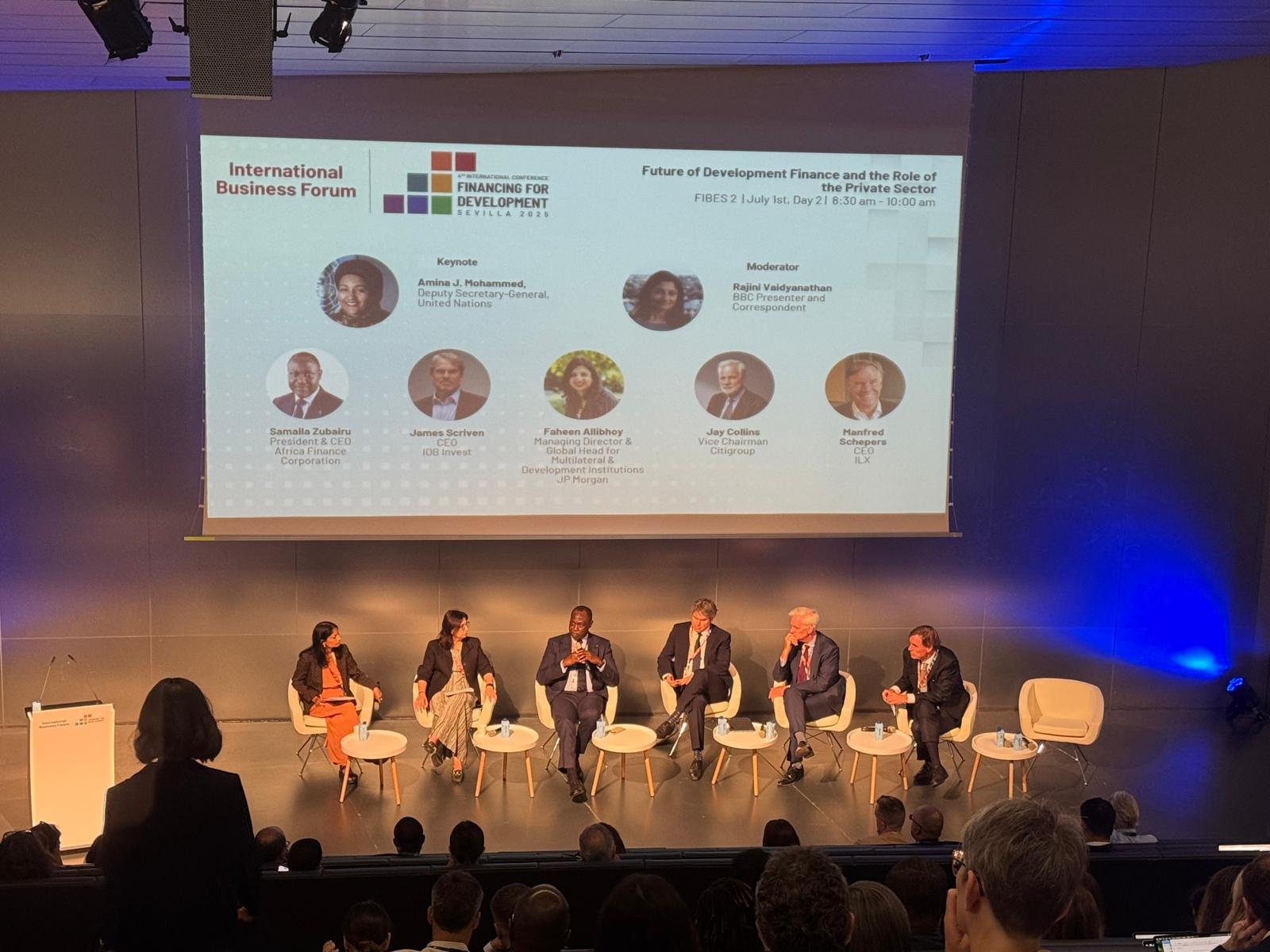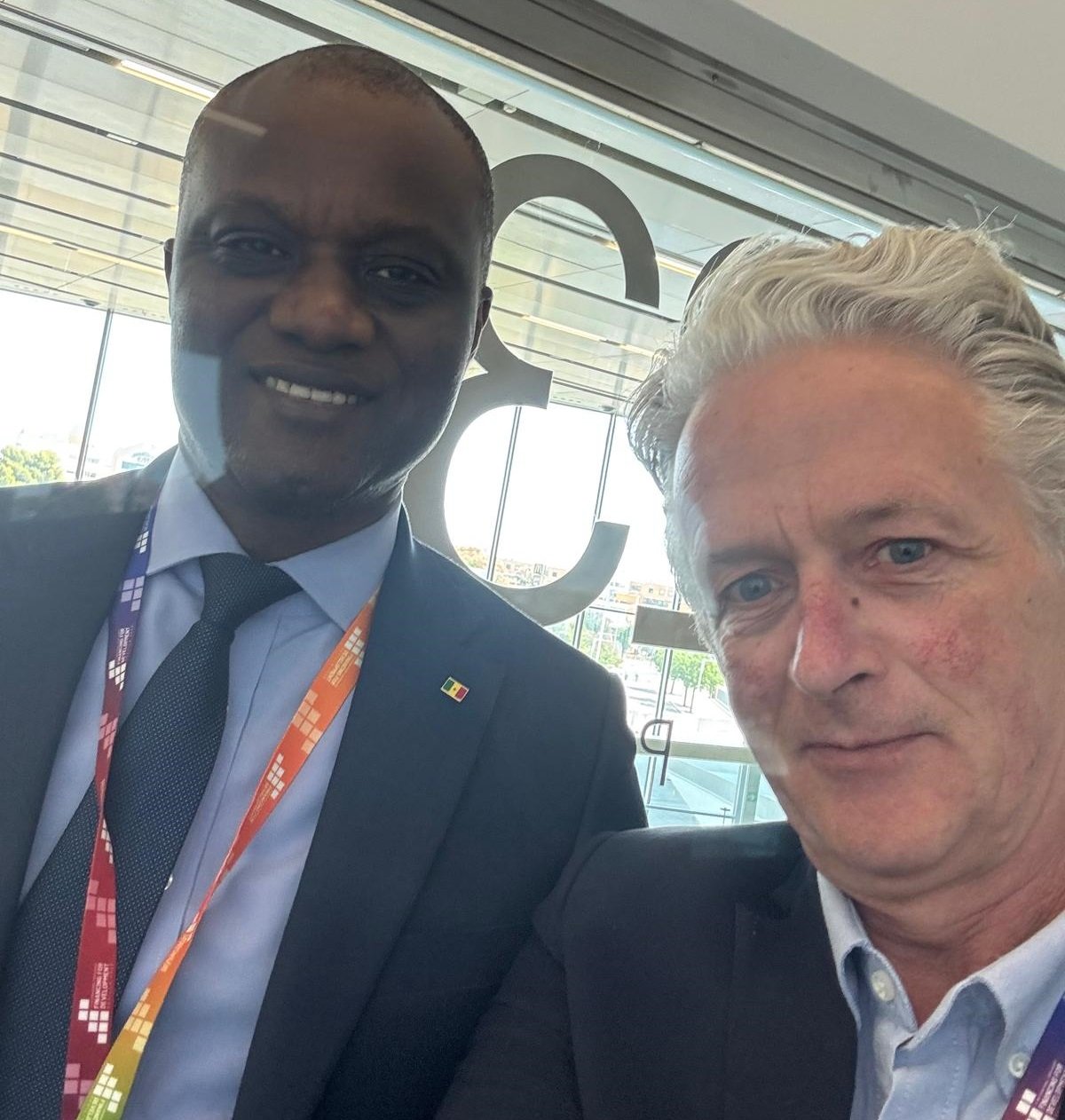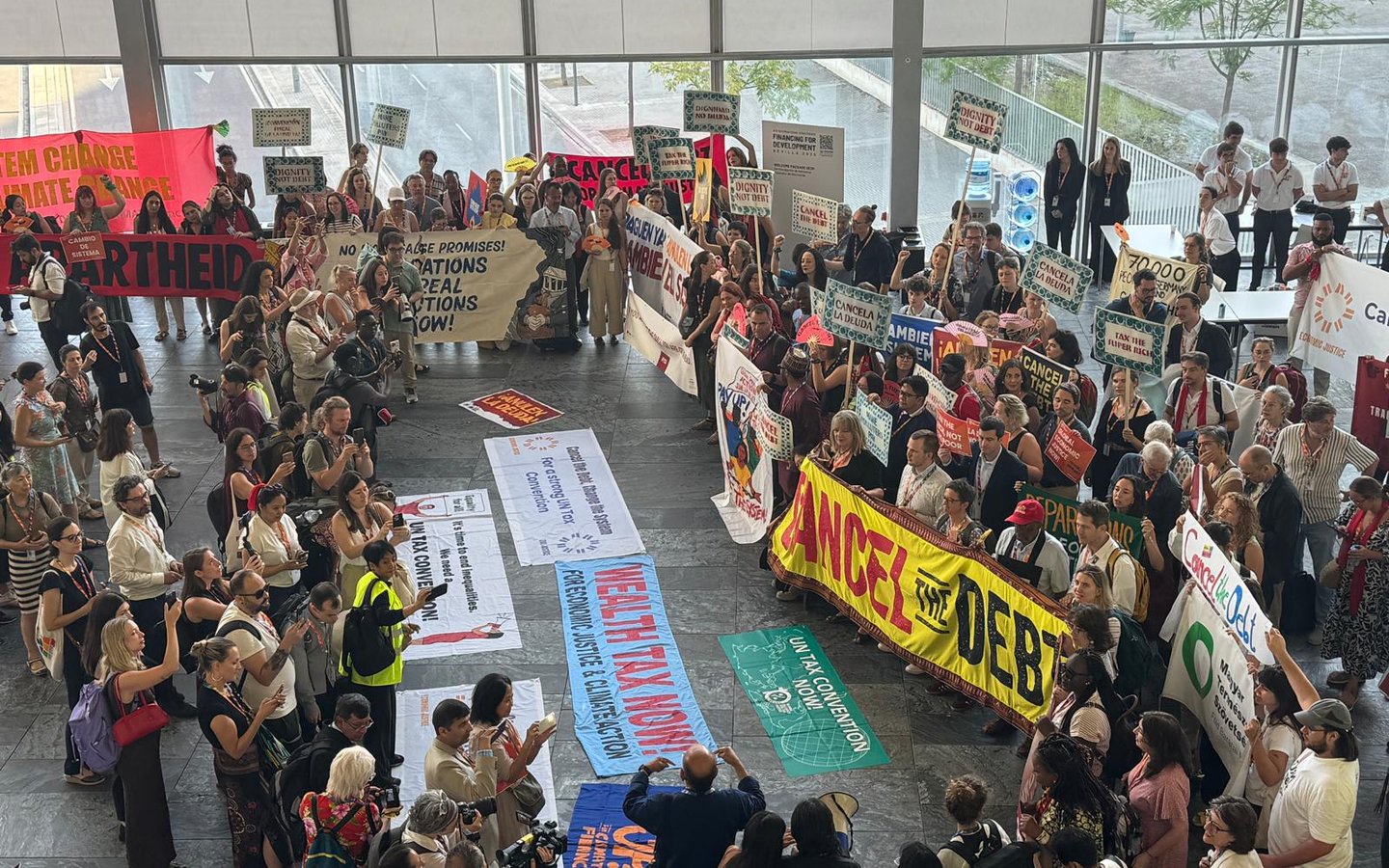30 June - 3 July 2025 Seville, Spain.
The Fourth International Conference on Financing for Development (FfD4) took place in Seville, marking a pivotal moment for global efforts to reshape development finance. It had been nearly a decade since the previous gathering in Addis Ababa, and this year's event concluded with the adoption of the Seville Platform for Action, a document containing more than 130 initiatives aimed at tackling global financing challenges.
Despite the ambition of the document, many participants observed that the bold language on redefining the global debt architecture lacked concrete commitments. Much of the programme focused on debt relief, climate finance, tax reform, and the evolving role of multilateral development banks (MDBs). While health received limited attention in the official outcome, confined to a single paragraph reaffirming support for universal health coverage, the conversations at the margins told a broader story.

Key Themes and Side Events
A wide range of side events explored both the practical and philosophical dimensions of development finance. These included discussions on blended finance, gender-inclusive investment, and innovative strategies for engaging the private sector.
At “Bridging Global Agendas - Scaling Up Financing,” senior figures such as Amina Mohammed (UN Deputy Secretary-General) and the Brazilian COP lead highlighted the importance of coherence across climate and development agendas. Meanwhile, World Bank President Ajay Banga acknowledged the limitations of current funding tools like IDA 21 and called for better risk-sharing mechanisms to encourage private sector engagement.
There was also a strong push to move beyond GDP as the primary metric of progress. At “New Approaches for a Renewed International Cooperation,” ministers and experts from across the Global South voiced their frustration at the inadequacy of GDP in capturing vulnerability and inequality. Calls to shift towards multidimensional development indicators were supported by Portugal, Barbados, Egypt, and Chile, among others.
The Politics of Debt
Debt was a central concern throughout the conference. At the “Debt Solutions for Resilience and Reform” panel, it was revealed that African countries spend $75 billion annually on debt repayment. Many leaders, including Egypt’s Finance Minister, urged urgent restructuring to protect long-term development goals. The UN Special Envoy echoed these concerns, calling for ambitious and equitable debt relief for high-risk countries.
Real-world consequences of debt burdens were laid bare at the Special Event on “Health Financing for a Safe and Sustainable Economy.” WHO Director-General Dr Tedros highlighted how countries like Gambia, Malawi, and Angola spend significantly more on debt servicing than on healthcare and education. Other participants, including representatives from UNAIDS, GAVI, and Africa CDC, underscored the importance of domestic resource mobilisation, better alignment with national priorities, and the move towards integrated investment strategies over vertical programmes.
The Role of the Private Sector
The conference made clear that Official Development Assistance (ODA) alone is no longer sufficient. Speakers noted that the private sector must play a larger role, particularly through the nine blended finance initiatives outlined in the Seville Platform. However, several concerns were raised about accountability, transparency, and the absence of human rights safeguards in private sector contracts and Public-Private Partnerships (PPPs).
Despite these tensions, momentum is building for a shift toward more sustainable and locally-owned finance models. AUDA-NEPAD CEO Nardos Bekele-Thomas highlighted the role of AI-driven innovation and regional health governance. Jean Kaseya of Africa CDC called for smart partnerships, not more aid, urging funders to align behind national visions and the Lusaka Agenda.

Pictured: The Minister of Economy, Planning, and Cooperation of the Republic of Senegal, H.E. Mr. Abdourahmane Sarr and Stuart Halford, Director of Advocacy and Resource Mobilisation
Bilateral Meetings and Opportunities
The conference also offered a chance to build partnerships and explore funding avenues. Meetings with AECID, Anesvad, KOICA, AUDA-NEPAD, UNFPA, and UNITAID highlighted opportunities to deepen collaboration on neglected tropical diseases (NTDs). Encouragingly, Spain’s new Global Health Strategy includes NTDs, and the upcoming 2026 AECID call for proposals may offer a funding window.
Conversations with Egypt’s Minister of International Cooperation revealed significant awareness of the country’s progress on disease elimination. Meanwhile, a meeting with Senegal’s Minister of Economy opened the door to future engagement on the Kigali Declaration and integration of disease elimination into broader development finance.
A Critical Moment for NTD Investment
Tax reform, debt servicing and equitable access to finance were recurring themes, but health itself was far from centre stage. Neglected tropical diseases were absent from the official agenda, despite their disproportionate burden on the poorest and most marginalised communities. Yet, the discussions in Seville made one thing clear: financing for development must include investment in diseases of poverty if it is to be truly inclusive.
NTDs are a clear example of where smart, targeted investment can yield powerful returns, reducing dependency, unlocking economic potential, and strengthening national systems. As countries and agencies rethink how development finance is structured and delivered, now is the time to ensure NTDs are recognised not as niche health concerns, but as central to any serious effort to achieve sustainable development.
